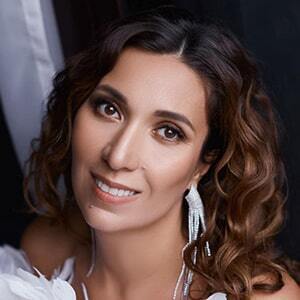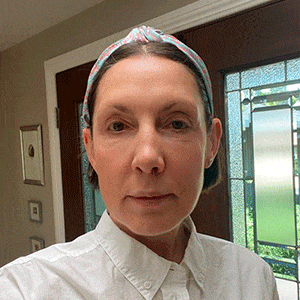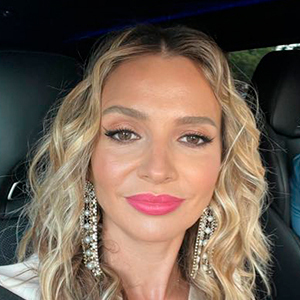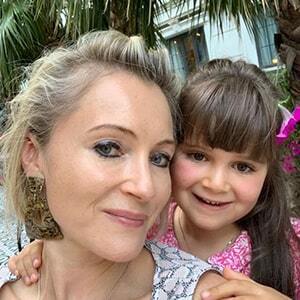Leave your phone number, we will call you back soon, answer all your questions and offer an individual program that is suitable for you and your child.
Admission to day schools
What types of primary schools are there in England and how do you get into them?
School education in England can be divided into 3 levels:
- Primary/preparatory(they are also calledJunior school) – primary school (4–11 years). Some private schools offer education up to age 13, and sometimes accept children from 5 or 7 years of age.
- Secondaryor Senior school – secondary school (11–16 years). At the end of their studies, children take GCSE exams.
- Sixth Form(Sixth Form) – the last two years before taking the A-levels exams.
Read full article
London continues to be an excellent place for your child's education and is home to many excellent schools – from local primary schools to internationally renowned names. London schools regularly appear in the A level and GCSE top schools tables.
London has large and famous private schools such as KCS Wimbledon and Westminster, selective public schools such as Queen Elizabeth School, Barnet, Wilson's Grammar School, Sutton, Tiffin and Tiffin Girls and non-selective schools such as St Marylebone and Camden School for Girls.
As always, parents are working hard to get into the best and most sought-after schools, so planning ahead will make your life a lot easier.
English school system
There are many good schools in London – public and private. Many families mix and match these schools, and a child at different stages of their education may attend each of them. Choosing a school can depend on both logistics and ideology. But for those unfamiliar with English schooling, the systems may seem confusing.
Public schools
Many families travel to London in the hope of securing a place at a good local state school. This has huge benefits: in particular, in primary school, your child's friends will almost all be local. You'll quickly feel like part of the local community. You won't spend hours in your car trying to navigate London traffic, or squeezing onto the tube or bus during rush hour. Particularly in central London, many are used to young children arriving without fluent English and having support systems in place. And, of course, they are free.
Primary schools
Primary schools begin at 3 (if they have a nursery) or 4 years of age and most operate until the age of 11, although there are also infant schools (3-7 years old) and junior schools ( "junior schools" (7-11 years old). Often, but not always, they are interconnected, with automatic transition from one to another. An increasing number of high schools are opening their own elementary schools and eventually they become full-service schools.
In both public and private schools in England (although some private schools may be more flexible) the cut-off date by age – August 31. This means that if your child's birthday is on 31 August, they will start at Reception at age 4 (Reception is Year 0, when all children in the UK start school). While a child with a birthday on September 1 will be 5 years old. Almost all British state primary schools are co-educational (both boys and girls) and non-selective (not academically selective). The exception is London Oratory Junior House, which admits only boys and tests academic and musical abilities.
Public primary schools may not have subject teachers, small classes and facilities like private preparatory schools, but the quality of education should not be worse. If you are lucky enough to live near a good primary school and have a good public comprehensive school nearby, your children's education will be secure. However, state primary schools don't prepare children for the 11+ entrance exams, so if you're aiming for a selective secondary school, you'll likely need to use a tutor around Year 5 (in the UK system, when the child is 9 years old).</p >

Secondary schools
There is much greater diversity among state secondary schools: single-sex and co-educational, selective and non-selective, and those in which some students are selected for academic, musical or dance ability.
The vast majority of London grammar schools are non-selective, although a few academically selective grammar schools remain in areas such as Kingstom, Sutton and Barnet. BRIT school in south London for children aged 14-19 – The only public performing arts school in the country where you can get into by audition!
UTCs, also aimed at teenagers 14-19 years old, specialize in vocational fields such as computer science and engineering, and have connections with local employers. Studio schools – These are small schools for the same age groups and offer extensive work experience alongside academic and vocational courses. Almost all other secondary schools are for children aged 11-16 or 11-18.
Some students, after passing the GCSE exam, move on to Sixth form colleges for 16-18 year olds. They generally offer a wide range of subjects and have a more school-like atmosphere. Some have academically selective vocational courses for those with a more practical bent.
Academies and free schools
An increasing number of state schools are becoming academies. These schools are government funded but are often run by a network of academies and there is now encouragement for all schools to become academies over the next few years.
Free schools were originally intended to be set up by groups of parents, and some of the first schools were, although many were set up by religious groups and most are now supported by academies. UTCs and studio schools are types of free schools.
Both types of schools are not controlled by local authorities, can set their own admission criteria (although must adhere to a national code), are not required to teach the national curriculum, and can employ unqualified teachers.

Enrolling in public school
A child can go to a public school in the UK (as well as a private day school) only if his parents have the legal right to long-term stay in the UK (have a residence permit, permanent residence , citizenship, work visa and other types of visas that allow you to stay in the country for a year or more).
Deciding where exactly your child will take his first steps at school can be nerve-wracking, and the primary schools you are considering are likely to be very local. The main criteria for admission to non-religious schools are usually the presence of siblings and then distance, which for popular schools can be less than a few hundred meters.
Secondary schools are much more diverse in their nature and admission criteria. They may also include academic screening and/or auditioning for performing arts aptitude. You may be able to apply to multiple schools at once.
Deadlines
Applications are made through your local authority in the autumn of the year before your child starts school or moves on to secondary school. Closing date for admission to secondary school – October 31st of the sixth year of study (year 6). For primary schools – January 15th prior to the September start date. If the primary school has a nursery for three-year-olds, you apply directly to the school when your child turns two; however, you will still need to reapply for a place in Reception (for four-year-olds) through your local authority.
Academically selective grammar schools, and some schools with partial selection for ability, such as music, now conduct entry/listening tests in the summer term of Year 5 or September of Year 6 to allow time for early reporting results before the October deadline for accepting applications. This usually requires you to register with the school during the summer term of your fifth year, so check the dates carefully.
How do public schools offer places?
There are some general rules that most schools follow.
- Statement of specischool names. These children are first in line and must be given a seat.
- Children who are or have previously been looked after. As a rule, they come next.
- Brothers and sisters. They often, but not always, take third place.
- Exceptional medical or social needs. This usually requires a letter from a doctor or social worker explaining why such and such a school is the only school that can meet your child's needs. Very few children get a place under this scheme.
- Distance. Typically this distance is determined by the shortest walking route. Sometimes schools may designate certain areas as their catchment areas. Some of them have special satellite primary schools. Some grammar schools limit the distance students can travel to school, for example by giving preference to children from certain postcodes. Your local authority should have information about how close you must live to a school (excluding religious schools) to have a chance of getting a place.
However, in London there are many different types of schools with different, and sometimes multiple, entry criteria.
Grammar schools
They conduct academic selection based on the results of entrance exams (usually a combination of tests in mathematics, English and logic). An increasing number of schools are giving preference to children who live relatively close to home; some also give preference to students with a tuition supplement. You will be told whether your child has reached a qualifying level by the application closing date, but will not be told whether they will actually be offered a place.


Disadvantages of public schools
- Over the next few years, public schools face a real funding cut of about 10%. Some teachers reportedly ask for parental contributions to cover basic expenses such as equipment for science laboratories; Whatever they say, and whatever the social pressure, it is not obligatory.
- When it comes to public schools, it's worth taking a closer look at how each is coping with funding cuts. Almost half of the schools surveyed had increased class sizes, half had cut curriculum and half said they had had to cut teaching staff, according to a study of 400 London public school leaders by London Councils. Try to carefully analyze whether the schools you are considering are cutting back in areas that are vital for your child.
- Schools also report difficulties recruiting and retaining staff. High housing and rent prices are forcing teachers to refuse to work in London, and others – move out of town. Good management – when employees feel truly valued – and disciplined, motivated students who enjoy teaching can help prevent teacher attrition: make sure you get to interact with some teachers while visiting the school, away from their superiors.
- The arts are undoubtedly suffering from funding cuts. London textiles teacher Andria Zafirakou from Alperton Community School, winner of the 2018 Varkey Foundation Teacher Award, has announced she plans to use her £1 million to bring artists, musicians, dancers, actors, illustrators, filmmakers and comedians to London schools to inspire a whole generation of children.
- Languages – Another area to make sure your child is given the opportunities they want. With London's secondary schools seeing declining numbers, one higher-performing Sixth Form center in East London doesn't even offer languages at A levels, saying there is no demand for them. Quite strange for such a cosmopolitan city.
- Over 200,000 children and young people in London have some level of special educational needs or disabilities. Over the past 10 years, the number of children with high needs has increased by 20%, with the types of needs becoming increasingly complex. There are concerns that the level of funding allocated to schools for high needs pupils is insufficient to provide the quality support they need.
Special schools are inundated with applications. According to one of the leaders of a group for children with autism, due to the number of applications per place, her school is now “harder to get into than Harvard.”
By using the services of our company, the client will avoid catastrophic mistakes that will be realized no earlier than a year later, and correcting them will be extremely difficult, given the specifics of the British system.
With our help, the child’s chances increase not only of understanding which school is best suited for achieving maximum results and development, but also of enrolling in it.
The key task – choose the right school.
Schools care not only about the results of entrance exams, but also about the student’s personality and interests. Therefore, we prepare a recommendation that presents the student in the most favorable light for each particular school, because we know the requirements and expectations of the schools.
We can, through such a recommendation, obtain admission to the entrance exams even for students whose grades are not considered high enough to obtain such permission. But we have the opportunity to persuade the school to give the student a chance.
We also prepare the child for the interview, which is of great importance for admission and can tip the scales towards a positive decision, even if the results of the entrance exams are not high enough.
Sometimes a student may be rejected simply because too many children of his nationality have applied to the school. No one will ever say this directly, the tests cannot be seen after they are written, you cannot appeal.
So we as a company do everything that we know the school will like so that our student gets a place. And we achieve this, even if initially it seems impossible.
If a student aims to get into the top schools, we conduct testing to determine whether these ambitions are somewhat realistic, and if so, our expert (usually a former director of one of the top schools) gives the amount of work that the student must do before admission.
List of services and their cost






About "Paradise"

Expert assistance in selecting the right schools for your child in the UK, Switzerland, which have been our main specialization since 1996.
We also help you enter schools where teaching is conducted in English: in the United Arab Emirates, Spain, Austria, Thailand, Canada, and France.
Full support in the admission procedure: preparation for an interview, visits to selected schools accompanied by a Paradise employee.
Assistance in applying to universities in the UK, Switzerland, Canada: writing motivation letters, creating a package of documents, creating the right case for applying for a visa (to avoid rejection).